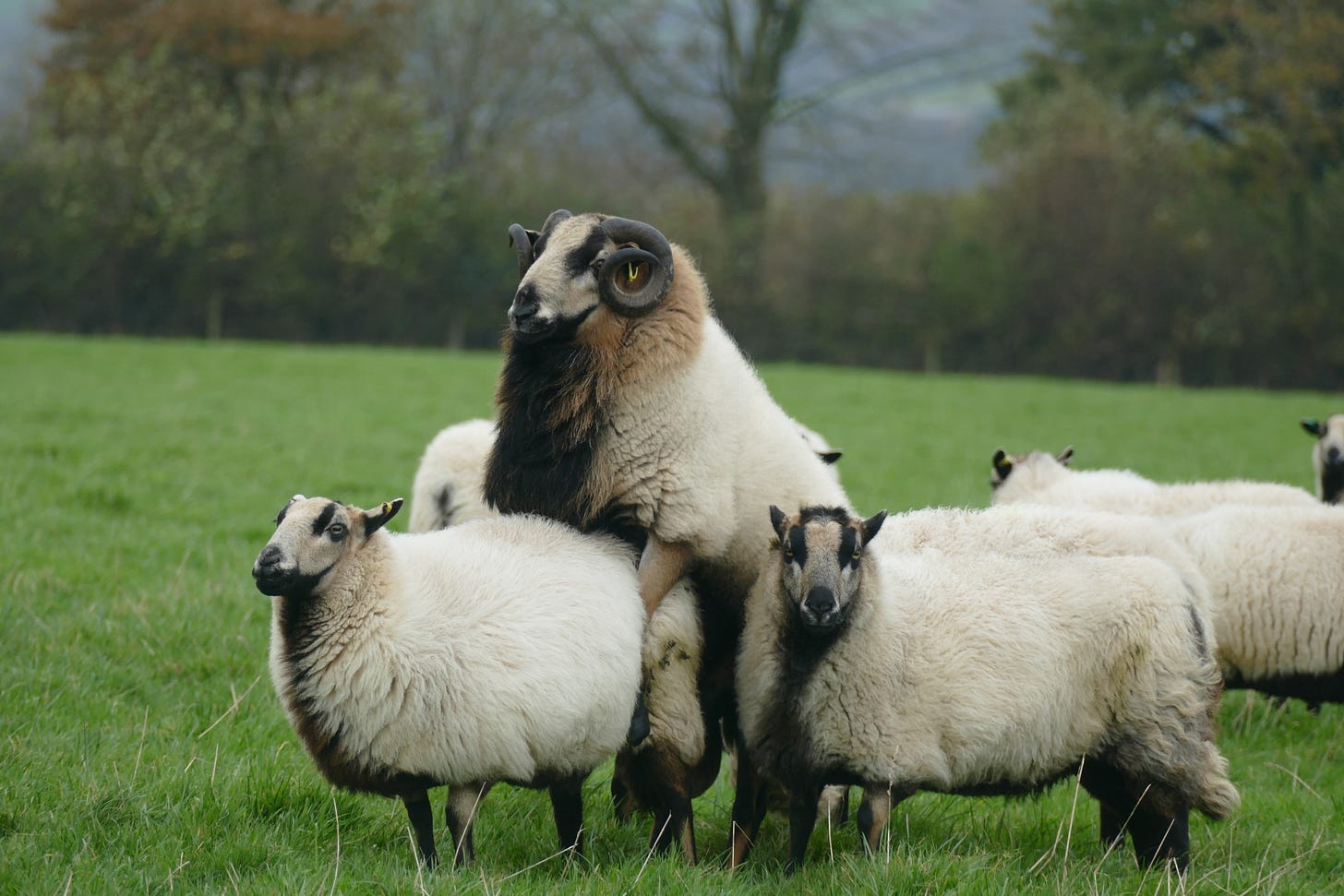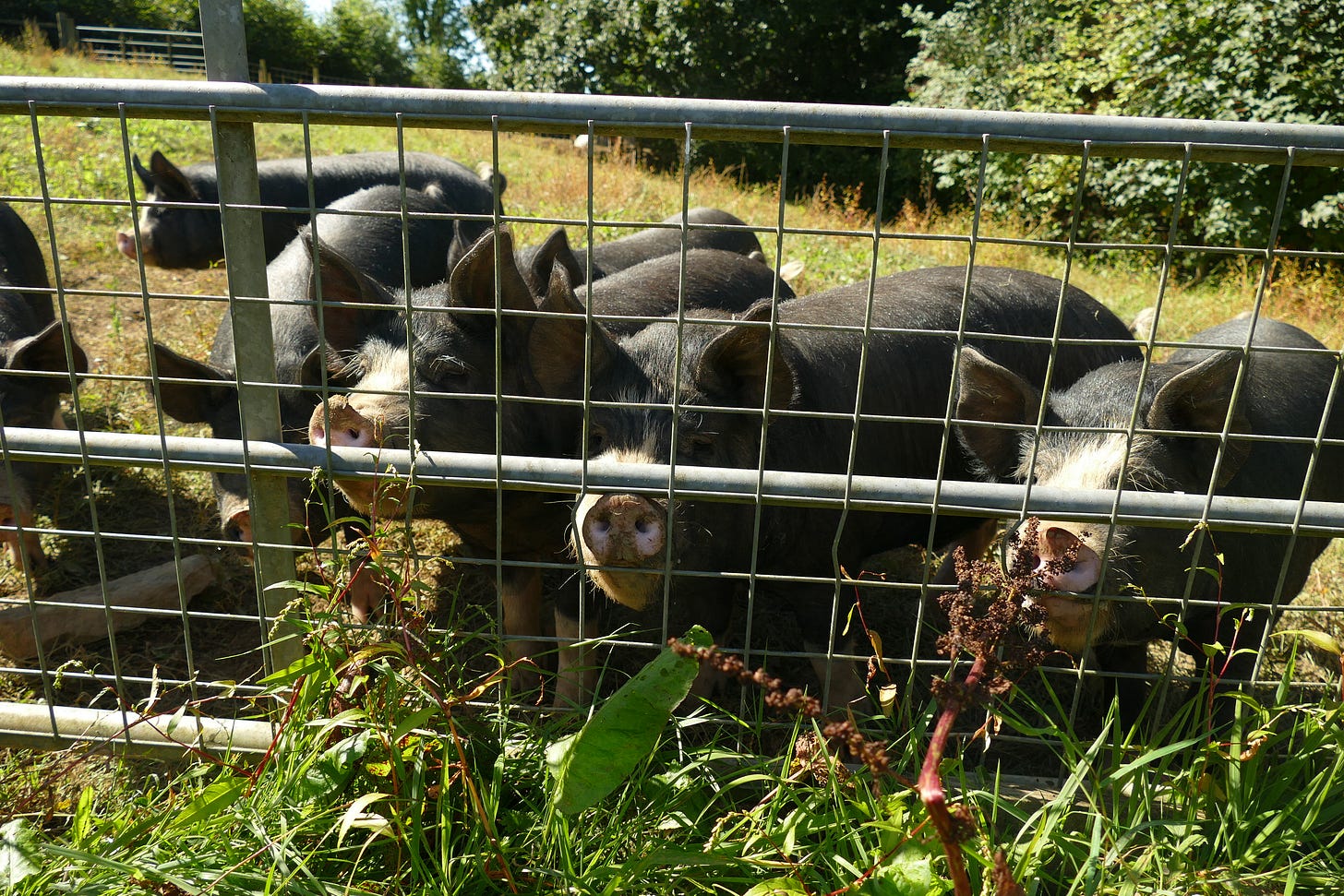One of the biggest misunderstandings about farming is that you need only the semblance of a brain to do it. Farming is for the thick, the unambitious, the unimaginative, the feeble-minded, the straw-chewers of life. All a farmer needs is the ability to rise early and to fettle a tractor when something falls off. When I talk about the intellectual challenge of looking after land and livestock to those not involved with farming or to those wondering if they could perhaps take on the perceived simple task of keeping a few sheep to grace their abundant lawns, I sense disbelief. Those who hang around long enough get the spiel about farmers being midwives, vets, animal behaviourists, parasitologists, biologists, geneticists, agri-ecologists, accountants, entrepreneurs, project managers, soil-scientists, mechanics, weather-forecasters, diagnosticians, light sleepers and hard workers. The list of necessary accomplishments varies depending on the audience and what’s uppermost in the mind at the time, but the list is always long and broad.
Farming is difficult, not just because politicians, multinationals and soap-boxers make it so, but because it is one of the more challenging of human activities. Reading the land and the weather, dealing with life and death daily, creating real food from the earth that keeps everyone fed is not simple. When some anonymous bloke on the stock exchange yells about pork bellies, it is just a commodity that rises and falls in value. There is no connection in the broker’s mind to an actual pig. To a pig farmer, pork bellies are a physical output; one of the pork products they are responsible for bringing to your table after months of expense, work, care, feeding and rearing.
How many job roles encompass such a crazily vast array of skills as that of the farmer, incorporating this breadth of physical labour and the mental endeavour? After construction, farming is the second most dangerous occupation in the UK. Most farmers are self-employed; there isn’t anyone to tell them what needs doing on any particular day other than noting what a neighbour might be up to. Planning to catch up on fencing repairs? The morning rounds indicate that a few sheep are lame and need attention first; that a gate post has rotted which means livestock have to be moved out of that area immediately and a new post banged in; the feed delivery has arrived early and your other half has damaged their shoulder and is on light duties.
At a wedding, we were accosted by an academic who laughed at our choice of farming; he was above using his hands for practical purposes. He was proud of his clean fingernails and soft hands. Delighted in his inability to fix things and his sense of superiority. He was happy to read Virgil and Hardy as long as he didn’t have to do any of the things they wrote about. I don’t know if he was trying to be deliberately rude, thought we had no intelligence to insult, was uncomfortable in our presence or just beyond foolish, but he is probably not alone in his sad and limited view.
I have held senior jobs in local government, worked with organisations to get them out of deep holes or reach new heights and closed those that were failing, created strategic change, trained leaders, run my own businesses and chaired conferences. All had their challenges and joys, but nothing, nothing comes as close to farming for being as difficult and demanding. Farmers are a tough breed, but whether we can weather the storms that rage about us is up for debate.





It’s beyond frightening how ignorant people are about how the food they eat is produced.
The general public are so far removed from where their food comes from..I guess I was until I did it…as you say every day is a challenge but saying that u wouldn’t long have it any other way….the joy of lambing is one of the greatest things I’ve ever done (and thanks to you I had the confidence and knowledge to do it) !!!